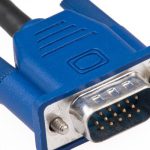
Introduction
When working with electrical and electronic devices, protecting your valuable instruments is paramount for their enhanced functionality, longevity, and safety. Instrument cases serve as protective housings for sensitive electronics, providing security, portability, and durability. This guide discusses the essence of instrument cases, covering their types, functions, and versatile uses across various facilities and applications.
Understanding Instrument Cases: Definition and Key Features
Instrument cases are specially designed enclosures designed to ensure your electric and electronic devices remain in top condition. These cases protect sensitive equipment from physical impacts and environmental factors like dust, moisture, and potential electrostatic damage. An instrument case is a cost-effective way to organise multiple tools and devices neatly, providing efficient and safe accessibility. Additionally, these electronics cases come in various shapes, materials, colours, and sizes, catering to the diverse needs of electronics technicians, engineers, hobbyists, and more.
Instrument cases come with standout features, making them a favourite choice for users in various facilities. They often come with ergonomic handles or wheels and built-in locking mechanisms for added protection and easy portability. Made from lightweight materials, an instrument case provides portable storage solutions. In addition, these instrument enclosures also incorporate padding and foam inserts, preventing equipment from damage due to shock or vibration.
Exploring the Main Functions of an Instrument Case
Instrument cases are versatile boxes specifically designed to safeguard sensitive equipment, especially test and measurement devices. They offer a variety of functions, such as:
- Shield sensitive electronics from dust and moisture.
- Prevent damage from impact, vibration, and weather.
- Allow safe transportation and storage.
- Offer organised compartments for accessories, wires, and tools.
- Provide custom-fit padding to keep instruments in place during transit.
Importance of Instrument Cases in Protecting Electrical and Electronic Devices
Electronic devices are vulnerable to various environmental risks. Factors like moisture, dust, heat, and physical impact can cause malfunction or complete failure. Without proper protection, even slight damage can reduce the efficiency and lifespan of sensitive instruments. Moreover, instrument cases act as the first line of defense, shielding devices from environmental and mechanical stress. By providing shock absorption, insulation, and protection from contaminants, these cases ensure the long-term functionality of the housed instruments.
Most Common Types of Instrument Cases Explained
Instrument storage cases come in various forms based on their materials, designs, weights, and special features. Some of the popular types include:
Hard-Shell Cases
Hard instrument cases are made from high-impact materials, including ABS plastic, polycarbonate, aluminium, or polyethylene. They provide robust protection against physical damage, ensuring sensitive instruments are safely stored or transported. Hard cases house high-value equipment such as oscilloscopes, signal generators, medical devices, and measuring instruments.
Soft-Sided Cases
Soft instrument storage cases are made from soft fabric materials such as nylon or polyester. They are lighter than hard cases and provide a moderate level of cushioning protection. Soft cases are ideal for housing smaller and less delicate devices, such as multimeters, signal analysers, or small electronic gadgets.
Rack Cases
Rack-mount cases are typically used for larger electronic devices that need to be mounted in a 19-inch rack, such as servers, amplifiers, or industrial control equipment. In addition, they are built with internal rack mounts to securely hold equipment in place, making them ideal for fields like telecommunications or broadcasting.
Waterproof and Dustproof Cases
These cases have special seals that resist water and dust and can withstand other harsh conditions. They are ideal for outdoor work environments, marine applications, or areas where equipment may be exposed to liquids or particulate matter.
Portable Instrument Cases for Transport
Portable cases are lightweight boxes designed to store and transport devices. However, they are suitable for on-the-go applications and often feature handles, shoulder straps, or wheels for added convenience.
Stationary Cases for Storage
Stationary cases are designed for long-term storage and emphasise durability and environmental protection. They ensure the devices remain safe from factors like dust, moisture, and temperature fluctuations during extended periods of non-use.
Custom Cases
Custom cases are tailored to fit specific equipment perfectly and are built according to particular specifications and needs. Additionally, they are used for any specialised equipment that requires unique dimensions or specific protective features that off-the-shelf cases cannot provide.
Typical Applications of Instrument Cases: Unveiling Their Versatility
Instrument cases find versatile applications across various industries, protecting valuable equipment from physical and environmental factors. Some typical uses of these cases include:
Medical Devices – Medical equipment, like diagnostic tools and portable monitors, requires cases that provide both physical protection and ensure sanitary conditions.
Testing Equipment – Cases for testing equipment ensure they remain safe and are robust enough to endure fieldwork and transport without compromising their accuracy.
Audio/Visual Equipment – Musicians rely on musical instrument cases to protect sensitive gear. Videographers also use these cases to safeguard devices like microphones, cameras, and mixing consoles from impacts, moisture, and dust.
Communication Devices – Satellite phones, radios, and other communication devices often require rugged cases that can withstand extreme weather conditions and impact during field operations.
Final Thoughts
Instrument cases are an essential investment for those involving electrical and electronic devices. The right case can extend the life of your equipment by protecting it from physical damage, environmental hazards, and general wear and tear. Whether you need a hard case for heavy-duty use, a soft case for lightweight protection, or a custom solution for a specialised device, there are multiple options available to suit every need.





















